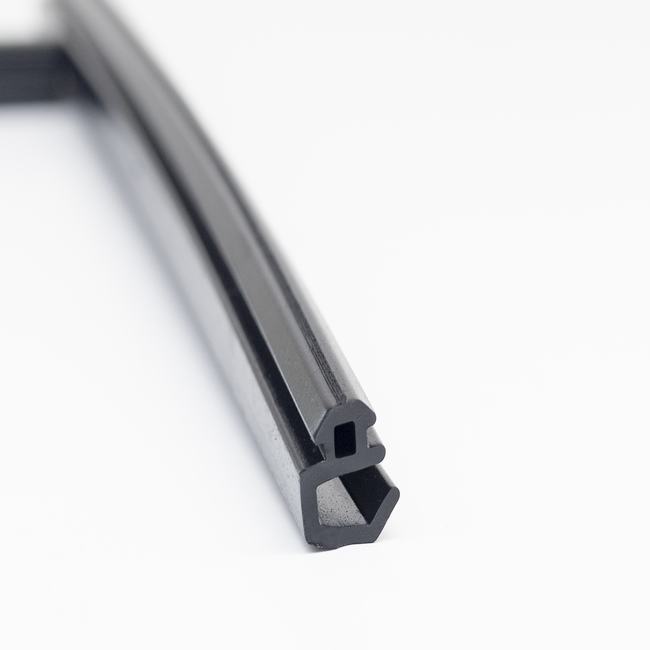Steel door seals, also known as door gaskets or weatherstripping, play a crucial role in enhancing the performance, security, and energy efficiency of steel doors in various settings, including residential, commercial, and industrial applications. These seals are designed to create a tight and effective barrier between the door and its frame, preventing air and water infiltration, minimizing heat loss or gain, reducing noise transmission, and enhancing security. Here is a comprehensive description of steel door seals, including their types, functions, and applications:
Types of Steel Door Seals:
- Magnetic Door Seals: These seals use magnets embedded in the door frame and the door itself to create a secure and airtight seal when the door is closed. They are particularly effective at preventing drafts and enhancing insulation.
- Compression Seals: Compression seals use materials like rubber, neoprene, or silicone to create a tight seal when the door is closed. The material compresses under pressure, sealing gaps and preventing the entry of air, water, and dust.
- Bulb Seals: These seals consist of a round, bulbous shape that compresses when the door closes, sealing gaps and providing effective weather protection. They are commonly used in automotive and industrial applications.
- V-Shaped Seals: V-shaped seals, also known as V-strip seals, are used to seal the gaps around the sides and top of a door. They are versatile and can be made from a variety of materials, including rubber, foam, or vinyl.
- Sweeps and Thresholds: Door sweeps are installed at the bottom of the door and are designed to prevent drafts, insects, and debris from entering. Thresholds are placed at the base of the door frame to create a weather-resistant barrier.
Functions of Steel Door Seals:
- Weatherproofing: Steel door seals create a weather-resistant barrier, preventing rain, snow, and wind from entering and protecting the interior space from the elements.
- Energy Efficiency: By sealing gaps and preventing drafts, these seals improve the insulation of a building, reducing the loss of heated or cooled air, which can lead to energy cost savings.
- Sound Insulation: Steel door seals can also reduce noise transmission, making them valuable in residential and commercial settings where noise control is important.
- Security: In addition to weatherproofing, steel door seals can enhance the security of a door by ensuring that it is tightly closed and preventing unauthorized access.
- Durability: Steel door seals are often designed to withstand heavy use and environmental conditions, contributing to the long-term durability of the door and its components.
Applications of Steel Door Seals:
- Residential Doors: Steel door seals are commonly used in residential entry doors to keep homes comfortable, energy-efficient, and secure.
- Commercial Buildings: They are widely employed in commercial and industrial settings, including warehouses, offices, and manufacturing facilities, where the sealing of exterior and interior doors is crucial.
- Automotive Industry: Steel door seals are utilized in automotive applications to seal car doors, trunks, and windows, ensuring a quiet and weather-resistant interior.
- Aircraft and Marine Industry: These seals are essential in aerospace and maritime applications to maintain the integrity of aircraft and vessel doors, preventing air and water ingress.
- Cold Storage and Food Industry: In refrigerated and cold storage facilities, steel door seals help maintain temperature control and hygiene.
In conclusion, steel door seals are indispensable components for enhancing the performance, energy efficiency, security, and comfort of steel doors in a wide range of settings. Their diversity in types and functions makes them adaptable to various applications, providing essential protection against the elements and improving the overall quality of the built environment.


